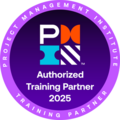Agile Methodologies with Scrum and Kanban

Agile Methodologies with Scrum and Kanban
Learn the principles and practices of popular SCRUM and Kanban. Build the skills necessary to be a member of a high performing, continuously improving and self-organizing scrum team.
Get More Info
What you can learn.
About This Course

UCLA Extension is a Premier Authorized Training Partner (ATP®) and is approved by PMI to issue professional development units (PDUs).
Winter 2026 Schedule
Enrollment limited; early enrollment advised. Visitors not permitted. Enrollment deadline: Jan. 11
UCLA Extension Lindbrook Center 209
UCLA Extension Lindbrook Center 209
UCLA Extension Lindbrook Center 209
UCLA Extension Lindbrook Center 209
UCLA Extension Lindbrook Center 209
UCLA Extension Lindbrook Center 209
UCLA Extension Lindbrook Center 209
UCLA Extension Lindbrook Center 209
UCLA Extension Lindbrook Center 209
Enrollment limited; early enrollment advised. Enrollment deadline: Jan. 11
Spring 2026 Schedule
Enrollment limited; early enrollment advised. Visitors not permitted. Enrollment deadline: Apr. 5
Enrollment limited; early enrollment advised. Enrollment deadline: Apr. 5
This course applies toward the following programs

Agile Methodologies in Management
The Agile Methodologies in Management Specialization prepares professionals, regardless of industry, to meet business needs quickly and efficiently. This three-course program is completed 100% online.

Project Management
Acquire comprehensive training in project planning, execution, and control, seamlessly integrating critical project components such as schedule, cost, quality, risk, and leadership in alignment with Project Management Institute (PMI)® guidelines. Formats: Online | In-Person

Project Management with Concentration in Agile
Enhance traditional project management practices with Agile approaches to meet the demands of the rapidly evolving workplace. Formats: Online | In-Person
Learn project management process improvements emphasizing efficiency, quality and customer satisfaction. Formats: Online | In-Person


